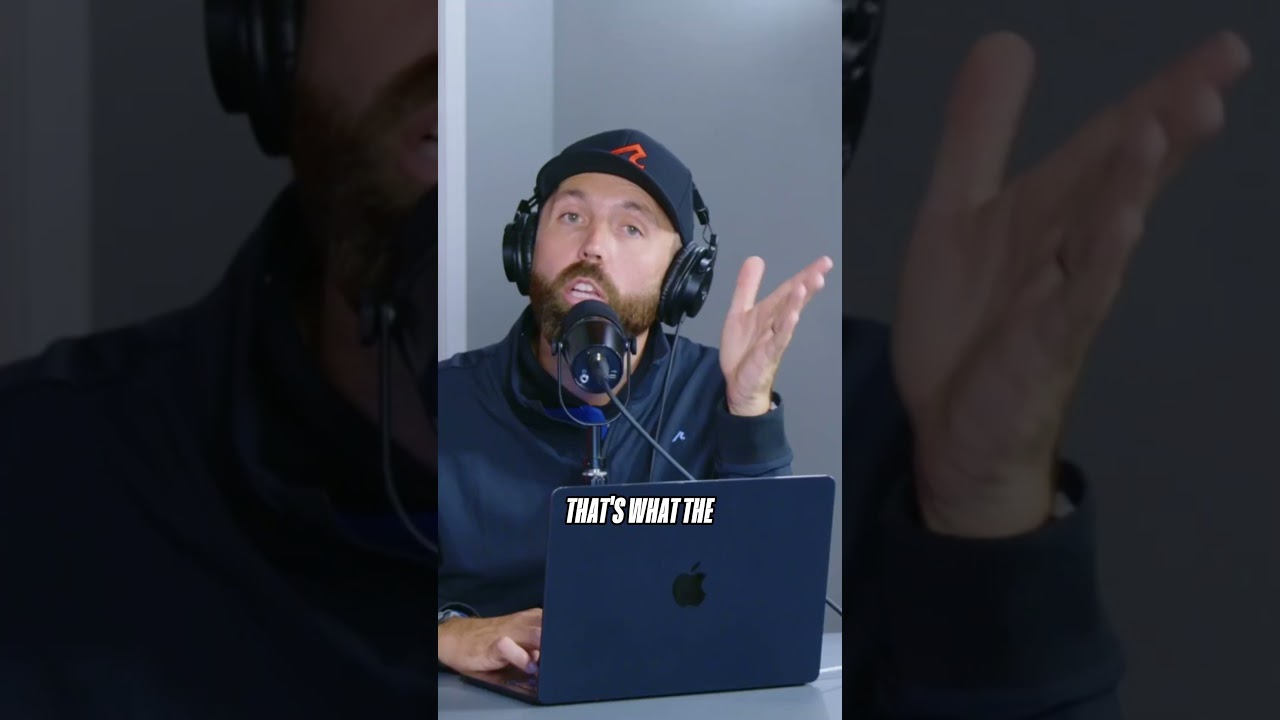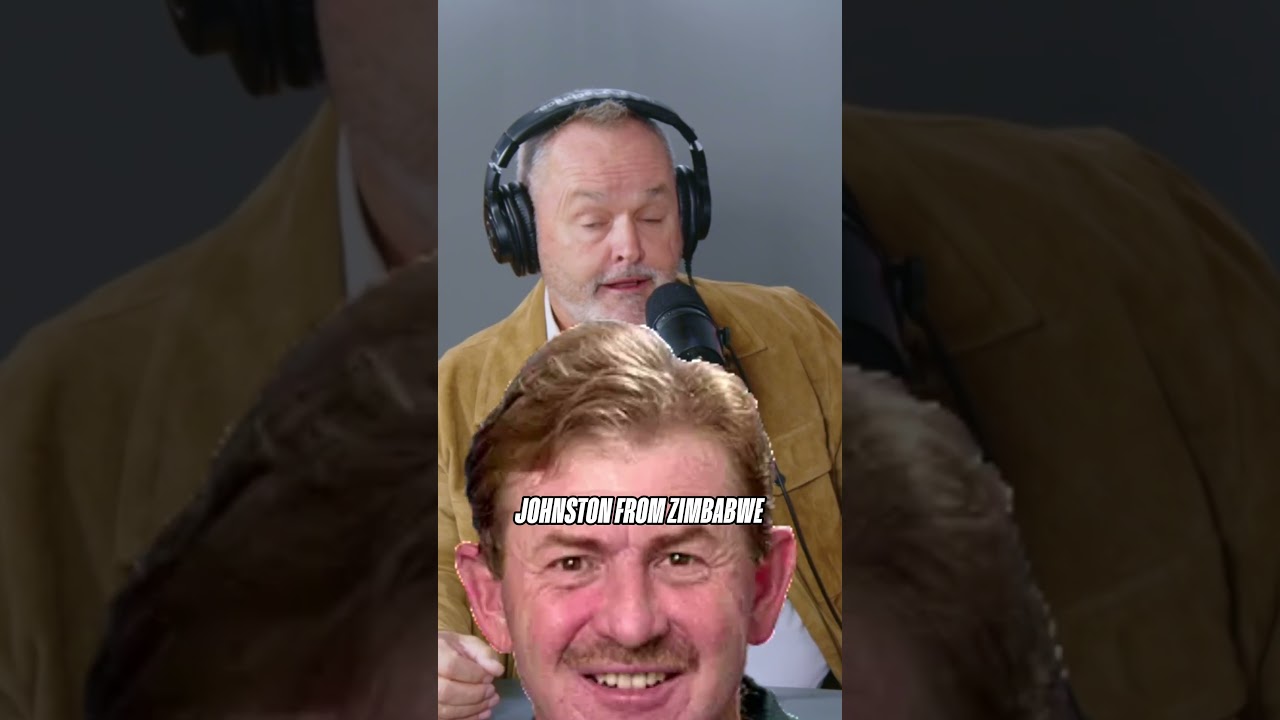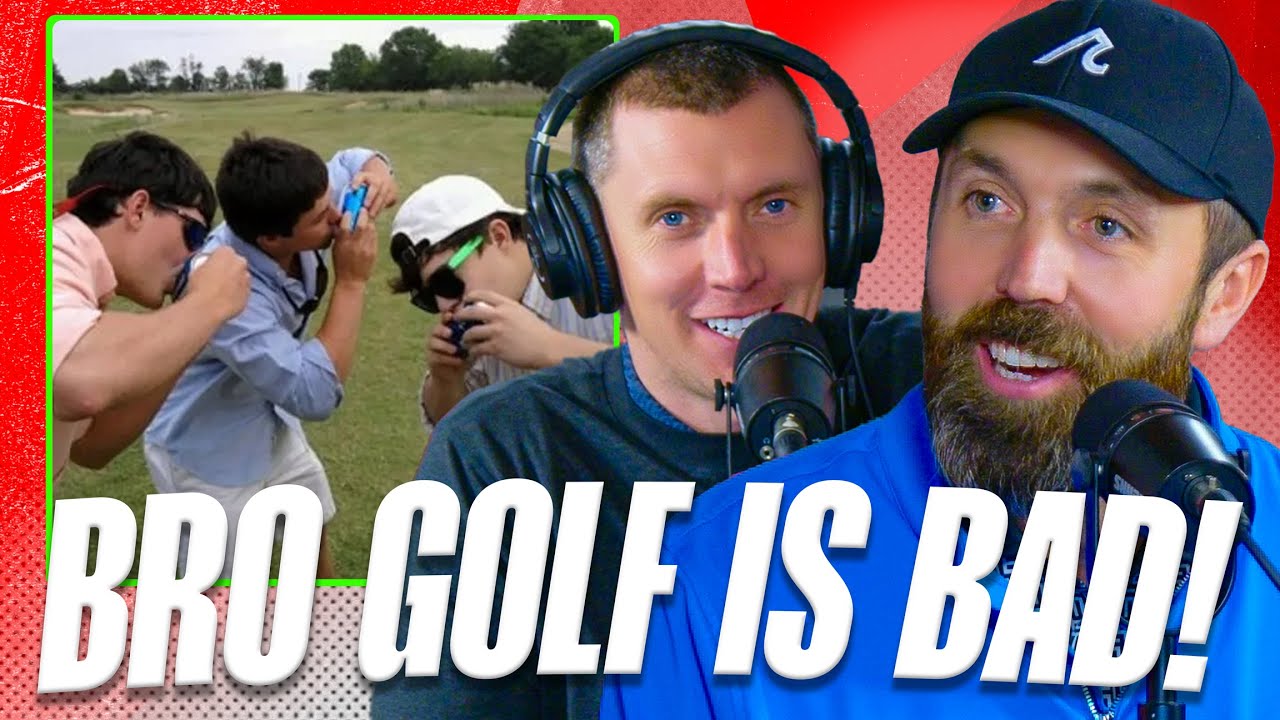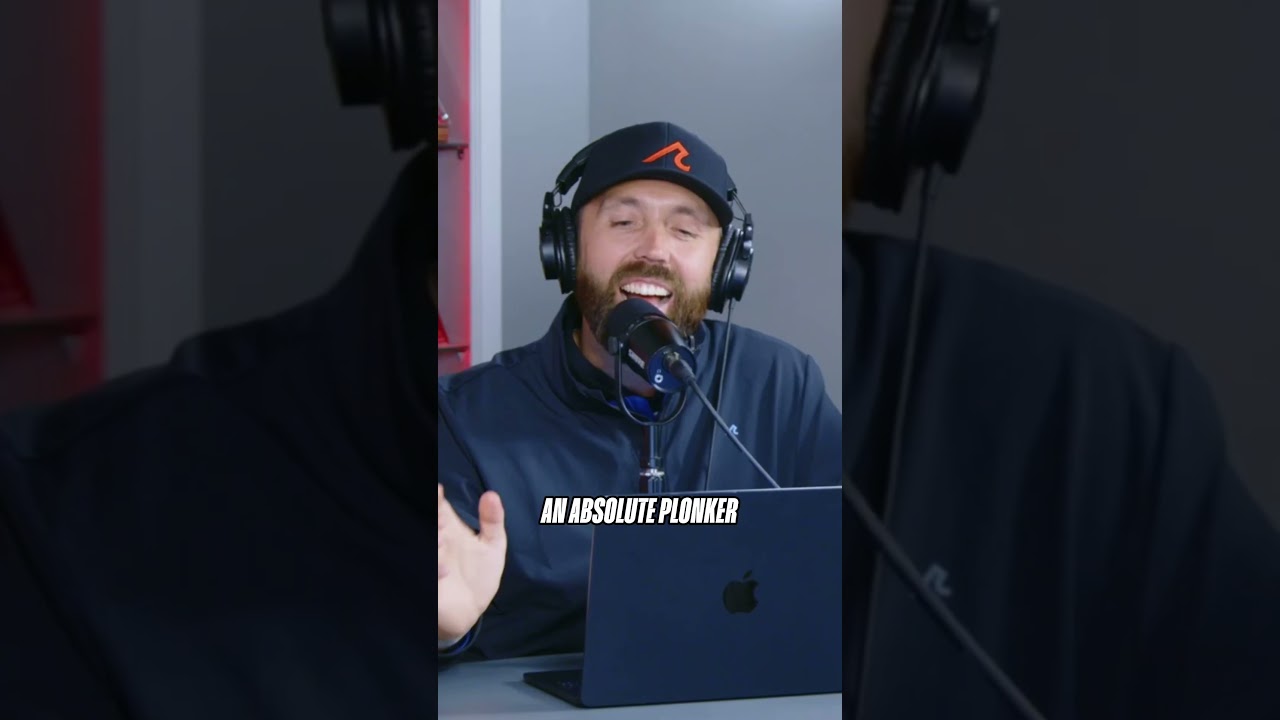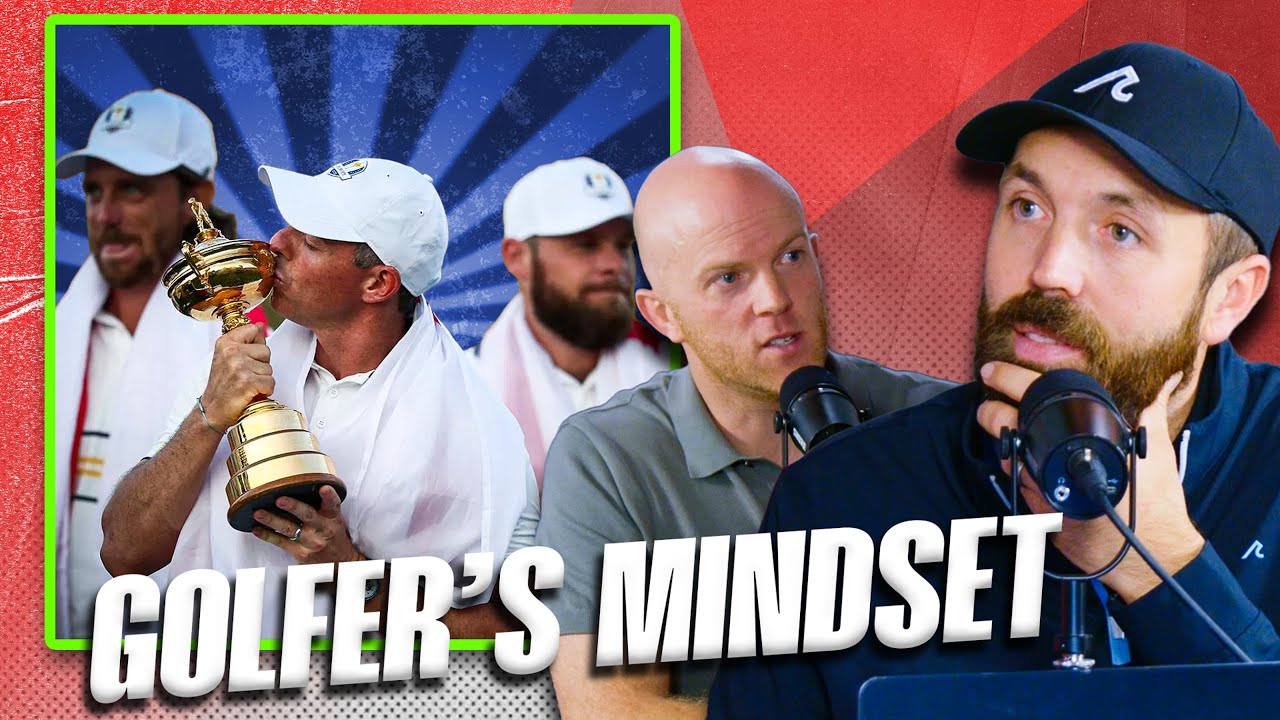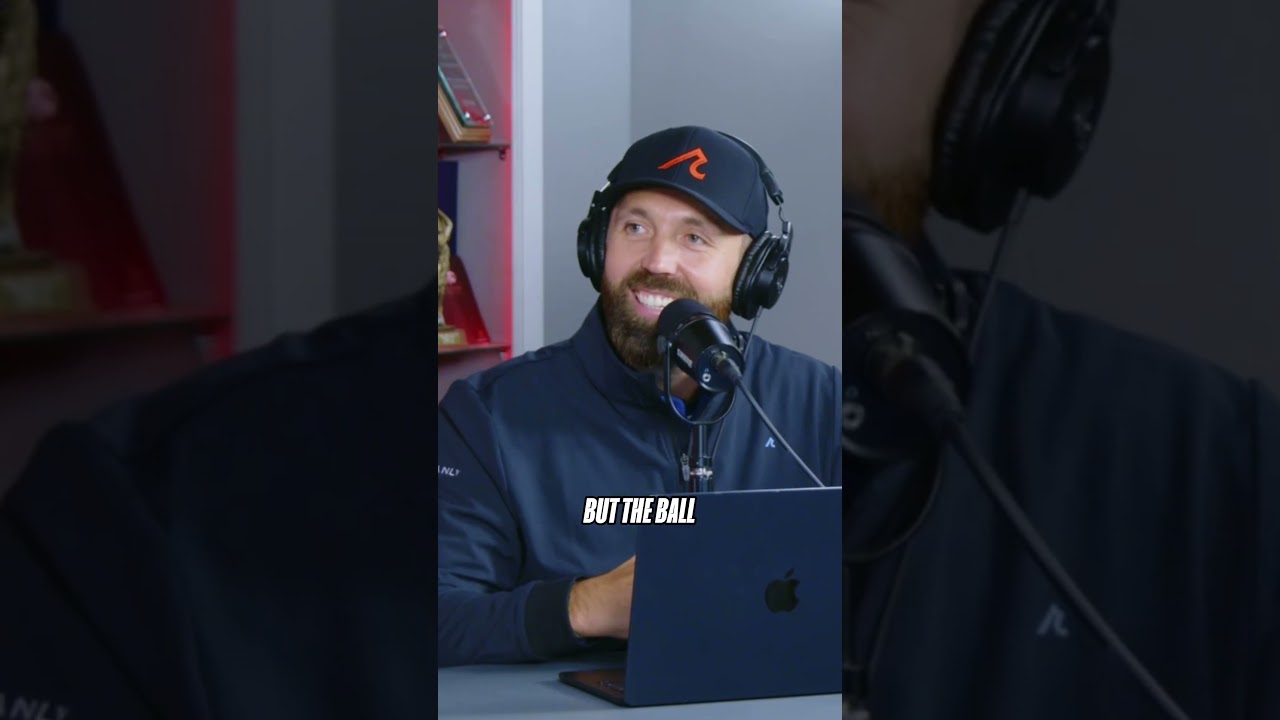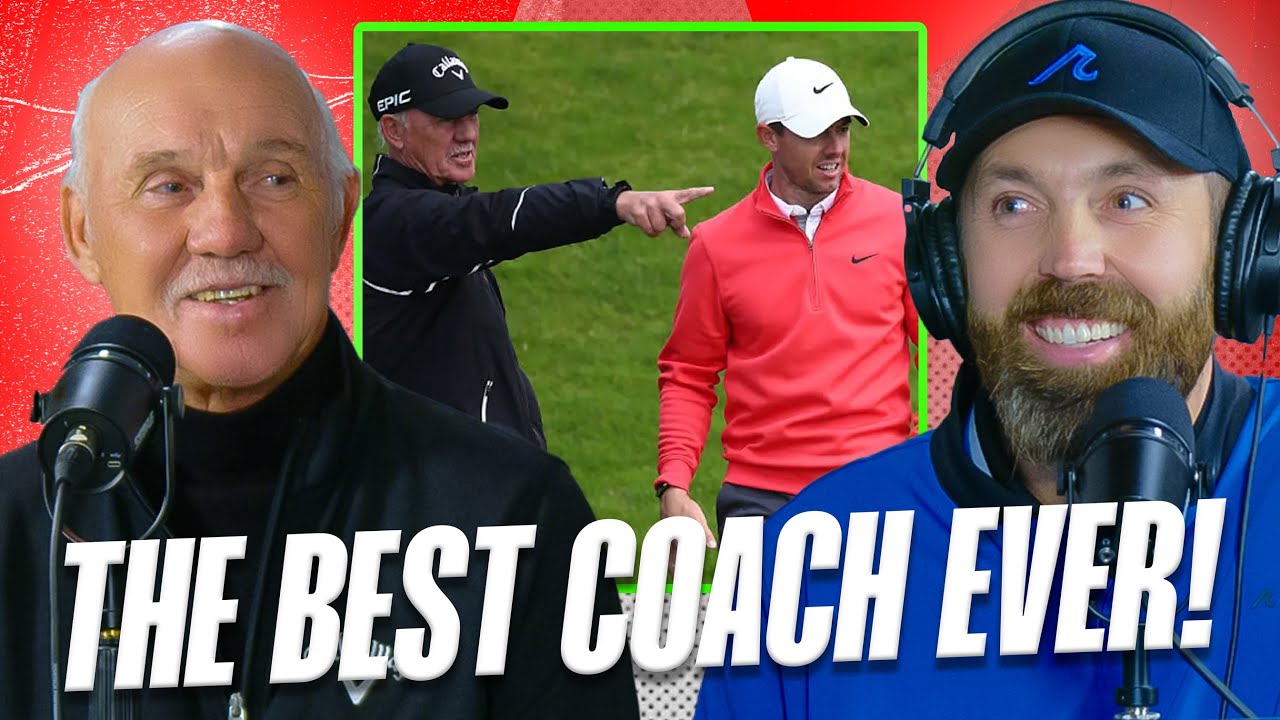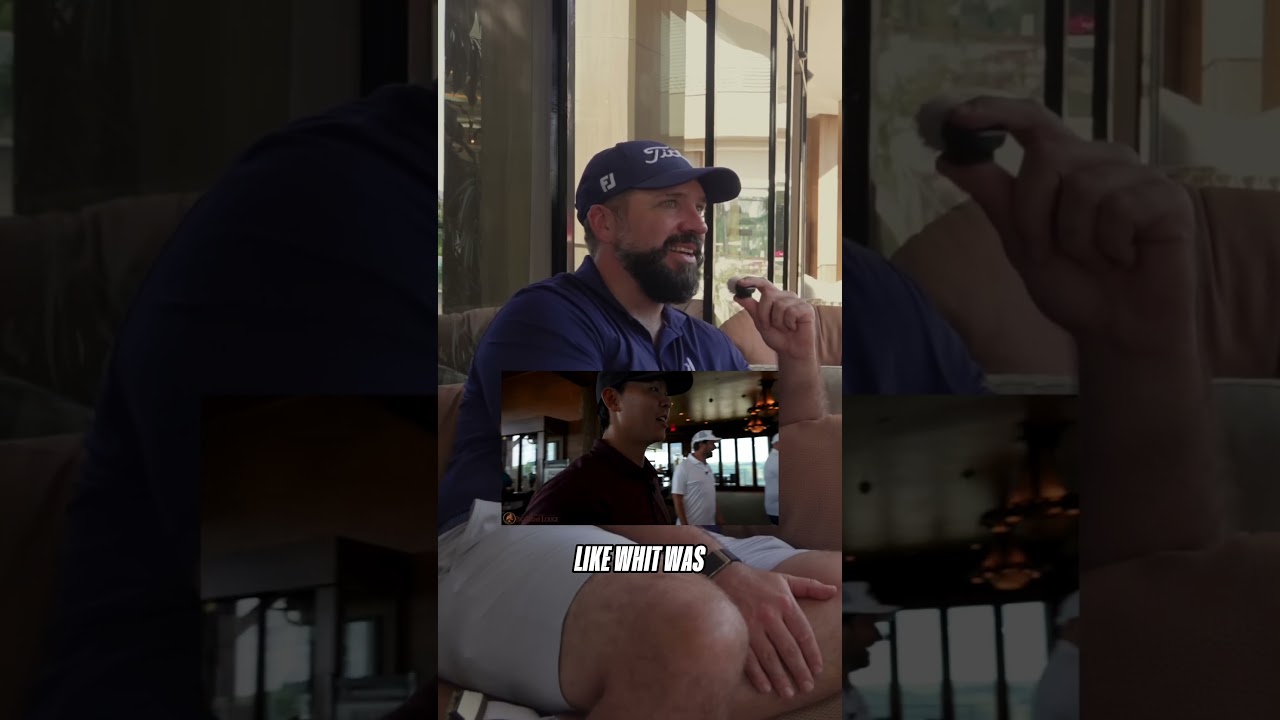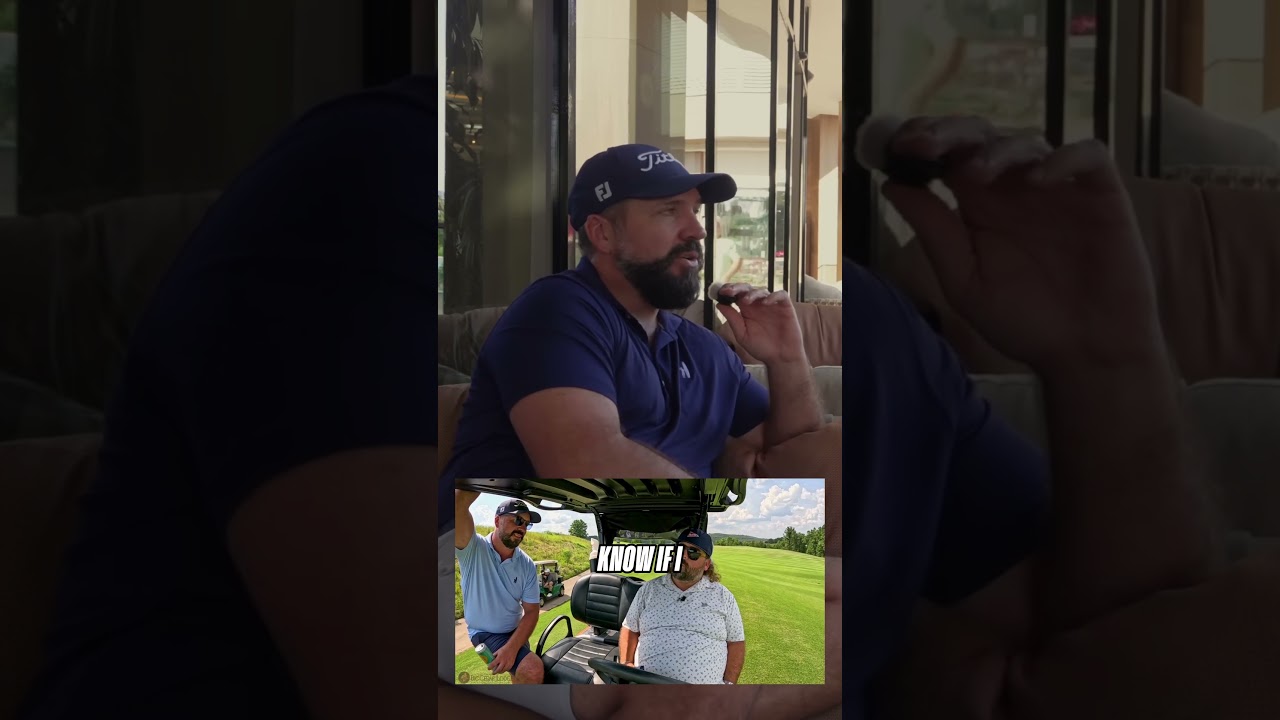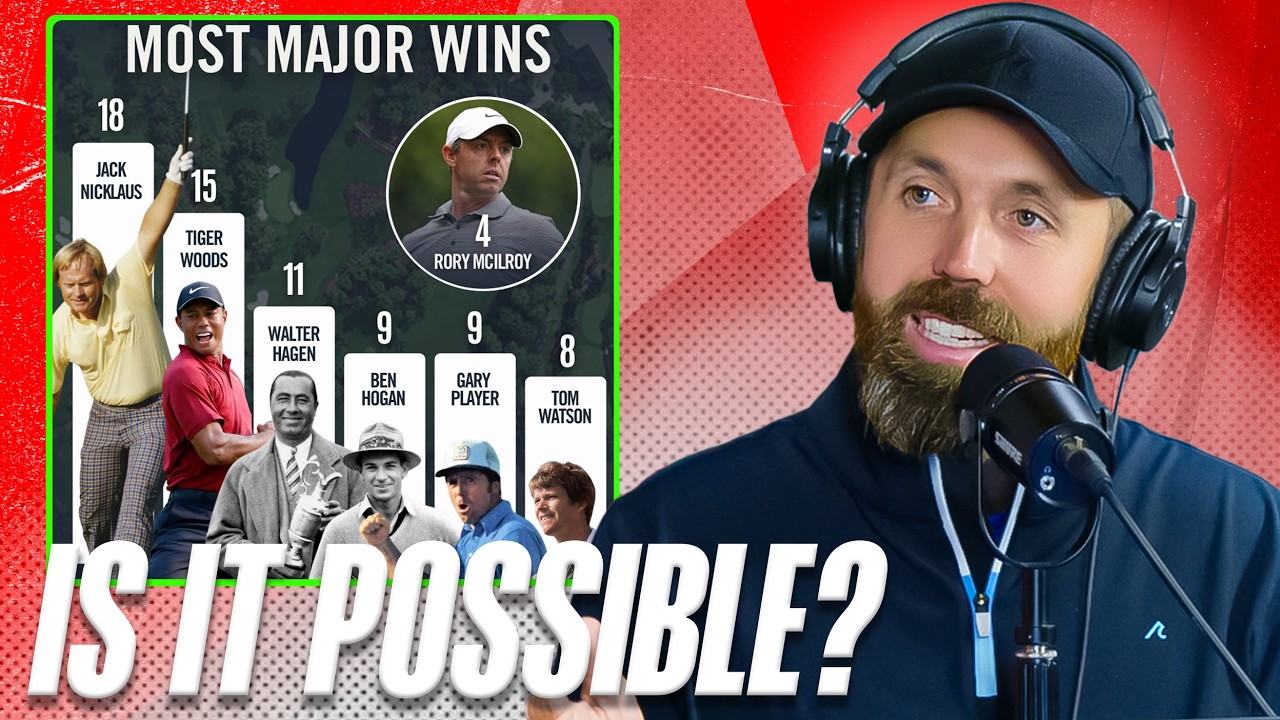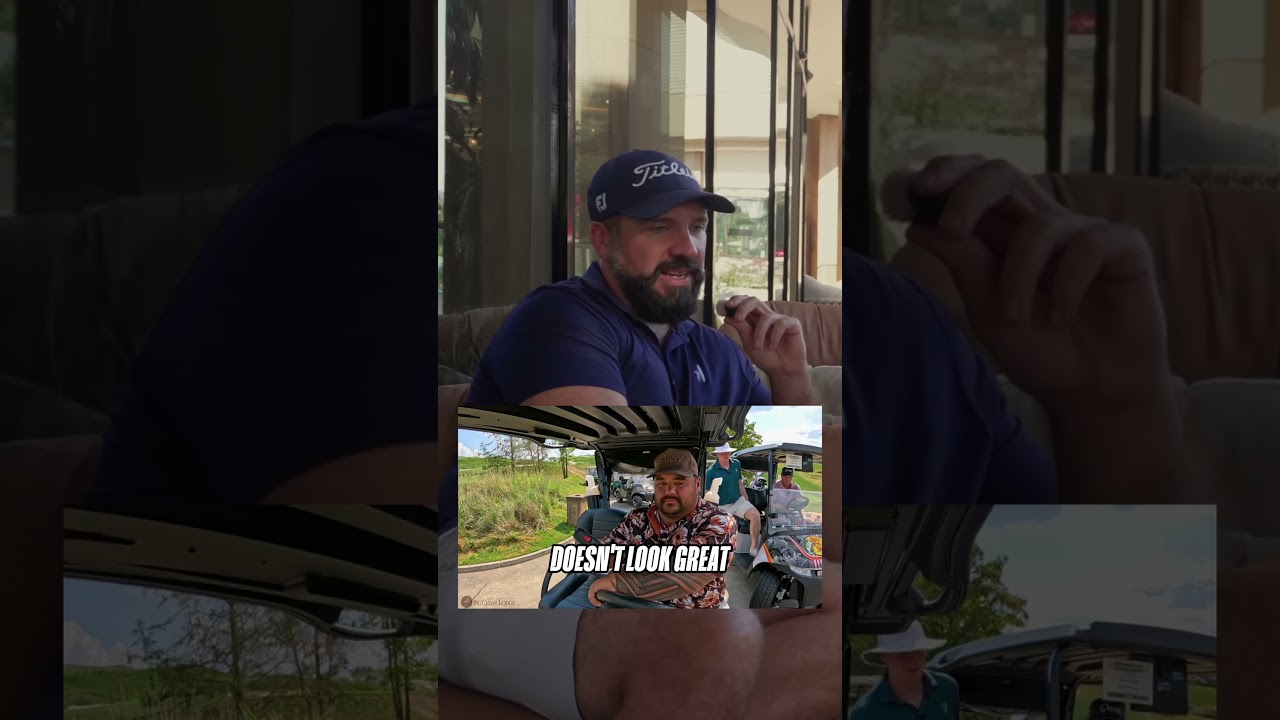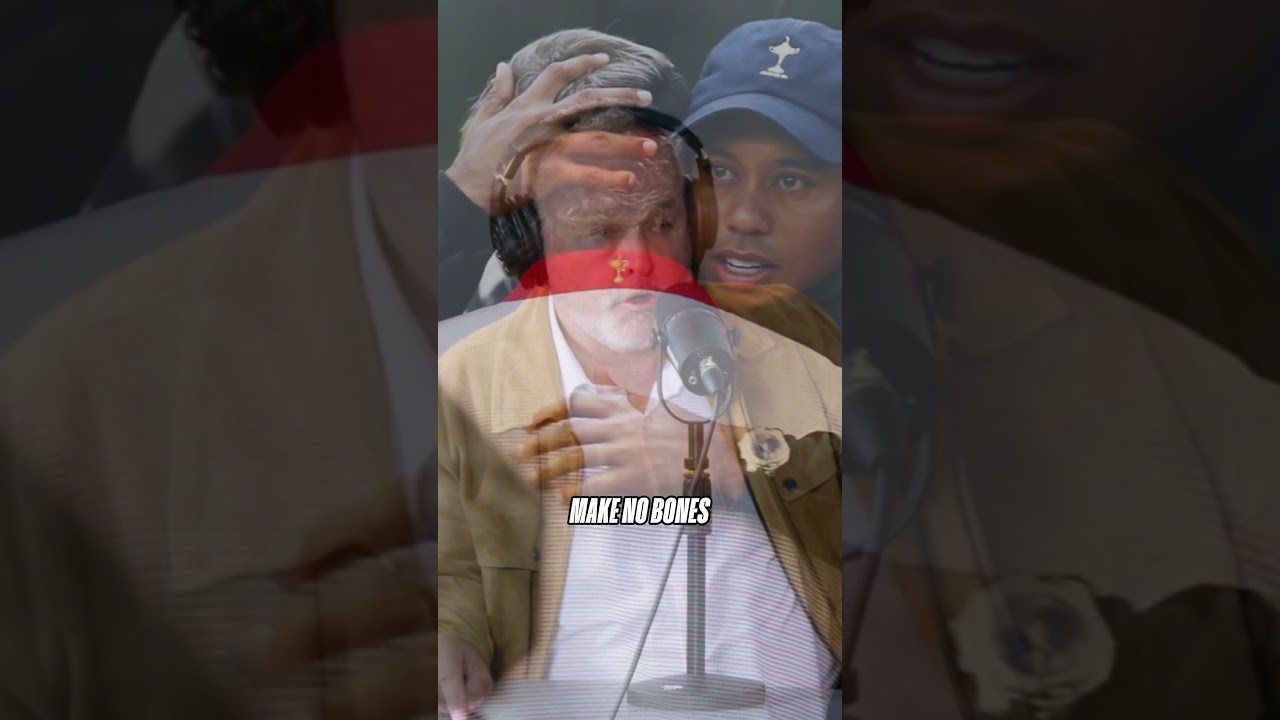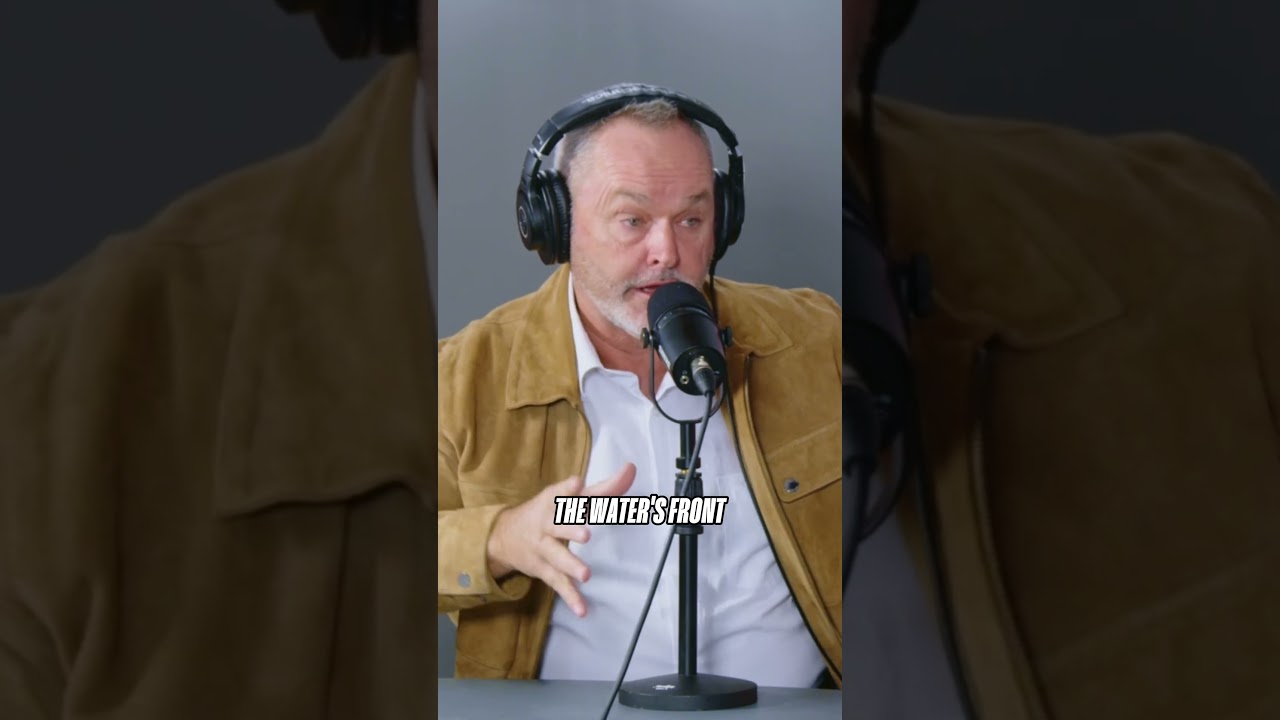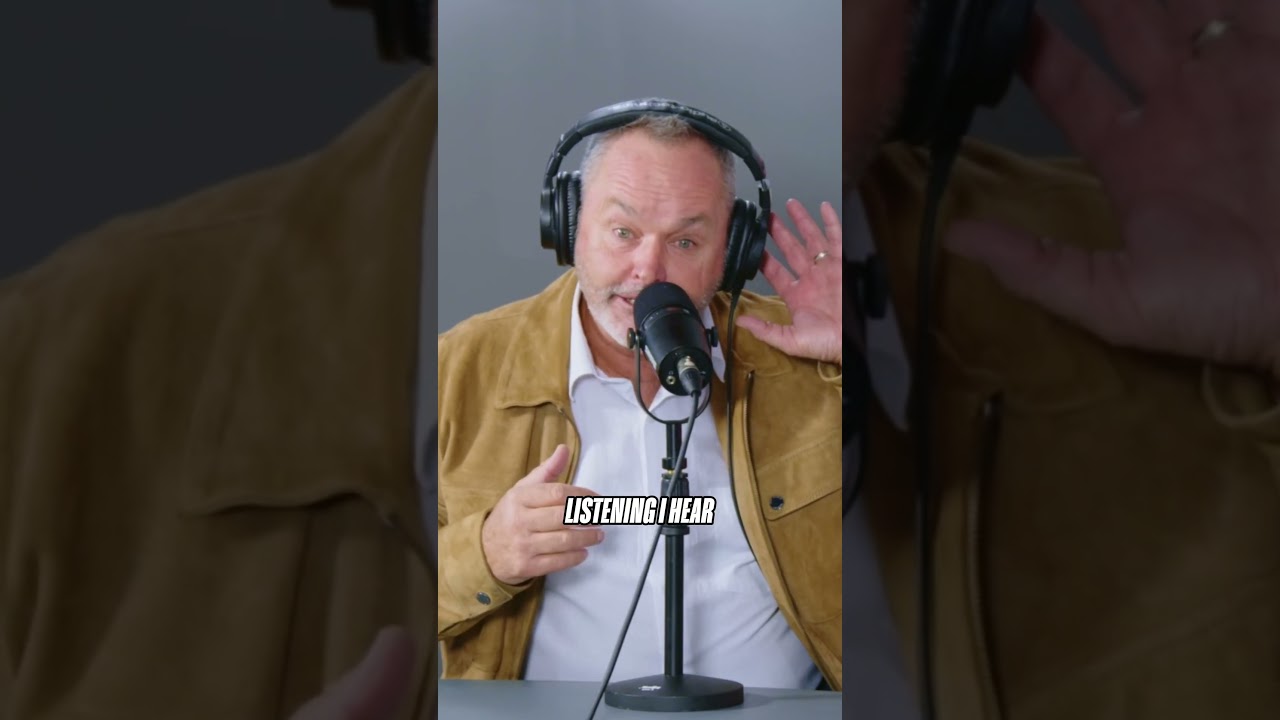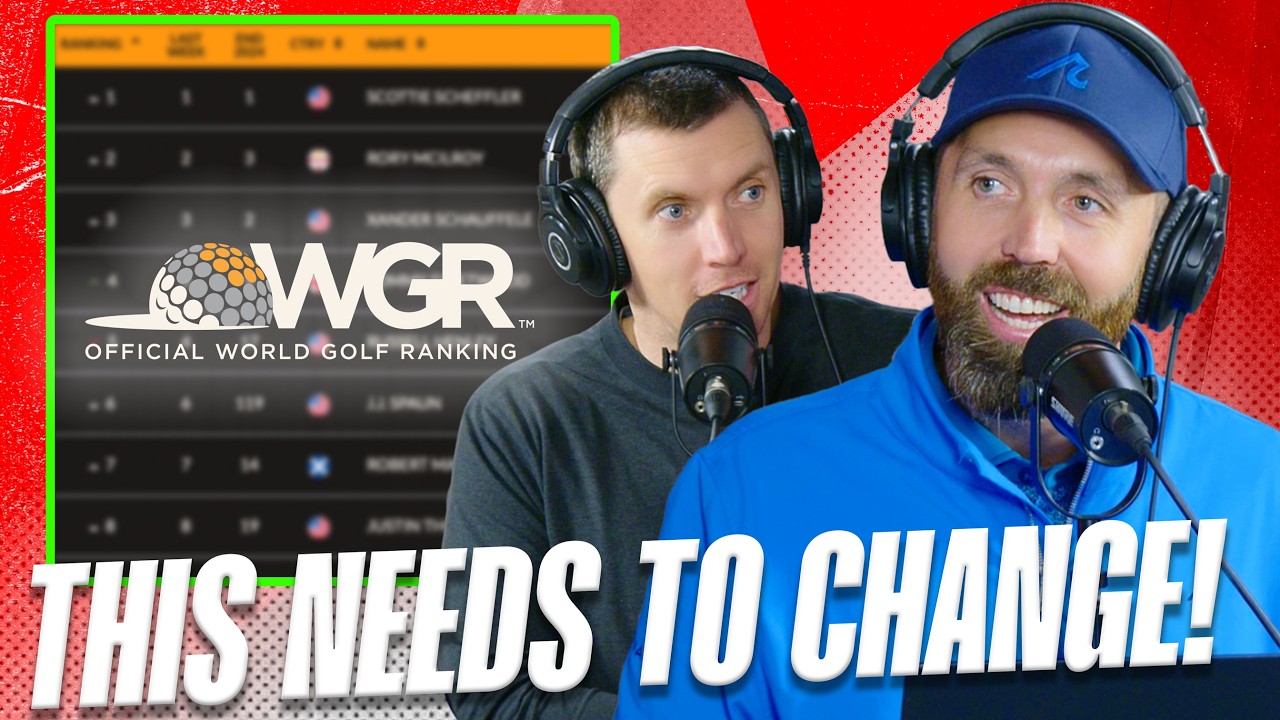Did you just turn professional you just received your amateur status you turned professional. And then.
Went to q school yes you you get a piece of paper put in front of you. And then.
It's basically i will be a professional please sign here how did sophie walker get into golf where did it where did it all come from where did it all start it started back in cleethorpes which is on the east coast of england. And my dad played golf so he played many sports and like most guys when he got into his 40s stopped his cricket in football and started to play golf he was the handicapped secretary at the golf club. And what golf club is this upscale okay club yeah is that blackpool way no it's the east coast oh you're still by the sea i get yeah i'm thinking of somewhere else. So it's it's um like grimsby yes okay i played a course over there i can't think of what it's called. But it was always super windy oh very windy yeah i'm good at hitting punch shots. So he was the handicapped secretary yeah. And he was just always he loved it always at the golf club. And would take me with him and i would sit sit there and get a chocolate bar and a can of coke from the pro shop go on the putting green the pro eric sharp he cut me down a little eight iron that i would hit around. And this was when i was maybe five. Or six i couldn't join the golf club until i was ten because back in the day even though it's it's not a posh club that is just what happened it's weird it's funny you say that because actually dan mentioned that last time dan whittaker mentioned that he couldn't join the golf club until a certain age. But i'm glad now that rules kind of embankment how old fashion does that rule seem now it just seems real we still got some golf clubs i guess that are the same. But that just feels ridiculous doesn't it it does. And ironically their junior section at clay thoughts was amazing we had over 100 juniors. So the section itself was great um all over 10 year old well over 10 to 18 yeah maybe because it was full i don't know. But we would have putting comps chipping comps you know if like a bowl of chips and the glory is yeah here's a fiver my mom would say he's a fiver i'll see you in 12 hours. And it was a really flat golf course. So we just used to play over and over again and didn't have a driving range like we had the grass 150 yard practice ground so that is where i learnt to chip the ball up into the golf bag which now when i give lessons i think that's the most impressive thing ever like everyone's like can you teach me to click that ball up into the bag. And you know it can't be teached no you literally riding the bike you can flick it through your legs you can show off a little bit you can balance the ball on the clubface. And it's one of those things you're right if you come into golf later in your life and you've got really good really quick you might be able to drive it brilliantly hit your irons great chip and port but unless you've got that skill to be able to flick it up into you into your shag bag is what they're kind of called um you just not got it. And if you've not got it you know it's very hard to teach yeah we used to practice it in the pro shop. And the pro would just be like get out of the shop please and it was great it was called paul davis in the end. And he's the pro there now he would he had a bag of clubs and he would pick out three club challenge and be like just off you go three club challenge and go out and play so we we all just loved it we spent every summer down there um and yeah i got better through playing with people my own age which i think was really important because the first year you know i played with my stepmom. And her friends and she was maybe 40 years old. And i thought she was well old. And and the first year when i was 10 i wouldn't say i didn't i kind of enjoyed it. But i didn't love it like i do now. And i played lots of sports football swimming horse riding hockey tennis everything but it took until i got to about 13 14 where i really thought oh i'm getting all right this game and what was getting all right what was what was sophie kind of 10 12 13 kind of handicap playing off at that time i was maybe about nine handicap um i think i yeah when i when i was 14 i had a had a big year i think i got down to from nine to three wow. And that's when i got into the england sides and and then.
Yeah then.
I was 15. And i won the english girls so it was it yeah it felt quite quick i suppose why did you where did you win the english girls sheringham link's golf course obviously um you had an advantage i had a big advantage there. But yes took my name down. For the english girls and went and won it and then.
England was saying well you now pick. For the home internationals and i was like i don't even really know what that was i've got to say. But from 15 16 yeah. So for the next.
Three years i played for england juniors and then.
I went and played for england seniors and again rewind that time let's say you're you're 13 when you properly started thinking you know i quite actually like golf was it at that point you thought um could there be a future in this was your dad kind of tempting you into moving into that that future was was eric i love that name by the way eric sharp what a name. For a golf throw that is. And then.
Who do you say paul paul davis is a throw there now. But eric sharp was my coach what a great name yeah. And what a great guy he had a junior academy you know one of the first people that really thought like gave his time up for nothing for juniors and i think that's because he'd taught a lot of tour players in the 80s. And 90s he was the first swing coach that would just do full swing. And he sent all his uh short game clients to harold swash oh wow so that's yeah he was very kind of thinking in that way. And that's probably why i started to use phil kenyon because eric was like that is not my expertise get yourself off to see somebody proper wow. So what from one coast to the other coast yeah because obviously there are 62 i know very very well. But yeah 13. Or 14 i think i started to progress i played county standard um at hockey. And swimming i think i was middling standard at swimming i was good at a lot of things. But i didn't maybe excel at them enough football as well was something that was good at. But women's football was non-existent really compared to what it is now. And i thought i want to be a sports person i loved the olympics you know i was one of them i just wanted to do some. But be an athlete as such so that's why golf i think at the time maybe golf. And tennis is the only sport that women could be seen to make money off. And my parents weren't pushy at all they were brilliant um my dad. And my mum would take me places but by no means come. And like walk the course and bash me for not playing very well and at the time actually like the internet wasn't that that big so i could go abroad i remember going to the french open in paris. And telling my dad i shot 73 72 he didn't know i mean why would he yeah he couldn't check he couldn't check is that what you shot. Or did you know i probably shot 74.75 yeah i love that yeah i think that's a great thing i kind of go into clarence my wife how'd you play you know i've played really well because you shouldn't watch the video she has no idea she thinks i'm the best golfer in the world did you have a good time yeah great yeah did you an interesting one then..
So obviously it sounds like rick said 13 you got really into it. And stuff did you have that spell that i certainly had i think rick probably did a lot of certainly men seem to do she gets like 17 18. And you start going out. And stuff and you golfed it's a backseat did that happen. For you or were you really kind of regimental with your practice still um well i went to university in england. So i mean that could have easily have got in the way of my progression in golf i did i went i did go out with my friends. And stuff i was i'm still known as sensible soap now. And people say you know you've had a good night out when sophie can't remember it so i am i will go on nights out. But i don't drink as much and i suppose that's kind of what i did back then.
I was just would go on a night out. But maybe not drink as much as other people but still yeah it's a good style cause you're still there you can still be involved with it. But then.
The next.
Morning you could be at the range grinding where everybody else is in bed yeah hungover pretty much. And that was the same at university i did the same there in fact i had my best year as an amateur in my final year of university. So i actually worked out that i played better golf when i was happy off the golf course. And had a bit of distraction when golf was my be-all. And end-all i got in my own way a bit that's really interesting i want to rewind back time just a little bit before you go back to university again so again you kind of 14 15 16. now again only because naturally when you're now looking at being an aspiring professional potentially sports person athlete are you looking at inspiration from the likes of tiger woods. And male tour pros or or do you almost lean on the experience you're seeing from like female tour pros. And i'm trying to think at the time who was like the the inspiration laura davis still still up there then.
Yeah. But but it was it was laura is still an inspiration um. But stuff's not on television back then.
That was the hard thing. So annika would get coverage because was it colonial she played at when she played in the men's that's right yeah. And also she shot like 59 in arizona exactly so she was just a huge she was above the rest by a long way um. And then.
There would be the weetabix which is now the british open which i would always try. And go to my stepmom was really keen on going to that event with her friends. And so that was the thing that i always try to go. And watch also but tiger if you look at my age um it's probably similar to eureka he's he's the one that we're all started so the first masters i remember was the 96 one watching it with my dad when faldo won. And then.
The next.
One was tiger. And that was it. For me i wore the red top i had his shoes i got his tightlist black and white bag the practice bag the shag bag i got that as well it he was the one. And and that's i think that's what's great about him that he can inspire men women juniors. And he's still doing it now isn't it of course but yeah he luckily he came along really because you know at 14 15. i can't imagine golf's that call. But he really made it people knew who he was i think that was a he was an intel he was he was more of a of a superstar than a golfer he was more of a superstar athlete. And a celebrity as opposed to just being a golfer really obviously he pioneered so many things but it was just an interesting take on that i was i was intrigued to know if if that was still the same. And i kind of guessed it would be um but obviously annika was doing incredible things in the women's game as well. And she was kind of winning loads of things. And playing in men's events and stuff and and also probably to some degree change the decimal point in ladies golf you know does she start making more money. For ages golf and then.
Suddenly like watch that becomes an aspirational kind of goal now that i can achieve you know. And when did it when did it really click in to go um i could be a tour player here this could be something i really kind of look. For in the future i wrote in my year 11 year book like what you want to do when you're older. And it was a professional golfer. So i'm well to be fair of all the english girls at that point so i had quite stable still do have quite stable parents. And they said you need to get your education. So that's why i went to university and it was almost like after you've done that then.
You can decide. And did you study not nothing to do with golf at university no i did sports sports science. And business management um at loughborough university so i was there with loads of other athletes. And it was a great time to be there because we just got the olympic games. For 20 2012 and everybody was just. So buzzing for the run-up to that so it was a really good place to be at that time. And i got surrounded with people in terms of fitness mentality that helped me a great deal and i suppose by the end of that university people that i was playing alongside in my amateur events were turning pro. So i was the best golfer i'm going to say in britain. But i was definitely the best in england. But the people i was playing against internationally the likes of carlotta zaganda azahada munoz. And the norqvist caroline masson i mean like the salon cup team pretty much now i don't know what happened to me. But yeah they they were all turning pro. And that's what happens you look at your peers and you think well if they're doing it then.
Why can't i do it yeah. So yeah went off to cue school. And at that point then.
At q school you do you you don't do you did you you didn't do your pga. Or anything did you did you just turn professional you just rescinded your amateur status you turned professional. And then.
Went to cue school yes you you get a piece of paper put in front of you. And then.
It's basically i will be a professional please sign here what was your handicap at this point then.
Plus three plus three wow i think it gets plus four is plus three um just a very quick one on the plus as well because a few comments i saw sorry yeah because i think what do america call it minus three i don't know. But basically it's to work out the net you plus three shots to your grocery store to work out the net yeah. So we were talking recently with dan whittaker. And he was talking about how you know tour pros are plus six plus seven plus eight to potentially properly properly make it on tour. And you're off plus three so after you're around the golf you added three shots onto your score instead of taking them away as a normal handicap would do um. So at that point we were you being sponsored were people approaching you with you.







